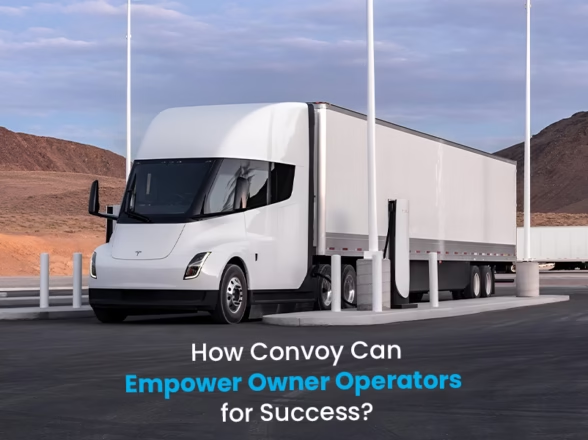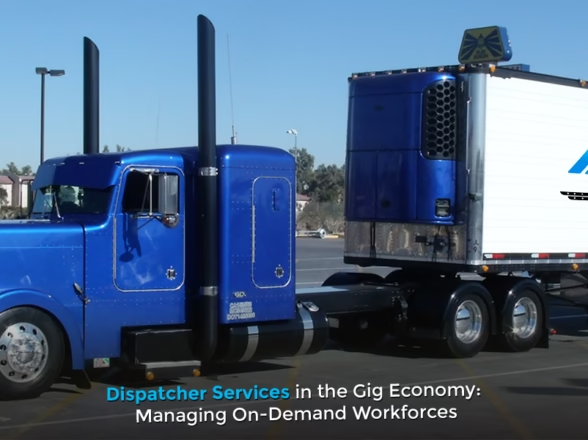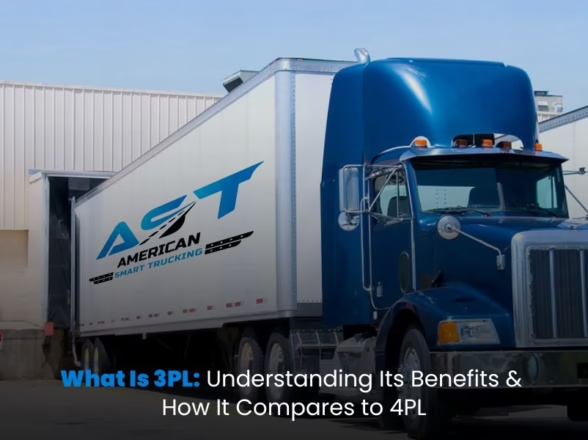Electric Trucks and Owner-Operators: What to Expect in 2025
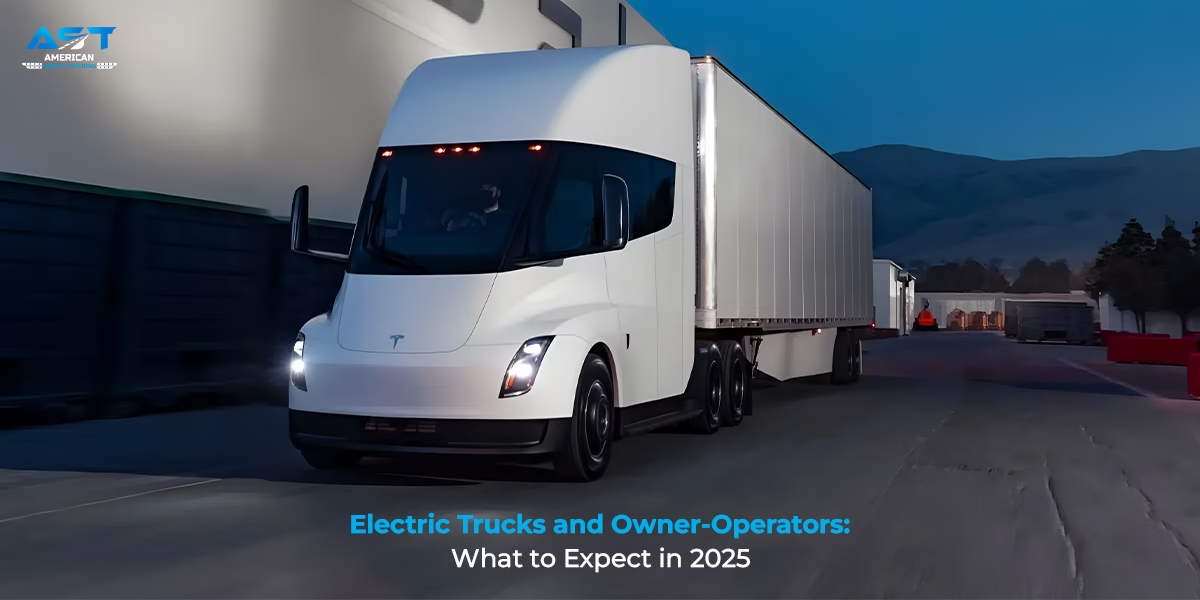
Electric trucks are becoming popular in the trucking industry, and many owner-operators wonder how they will perform on the road. In 2025, advancements in technology are expected to make these trucks more powerful and efficient. Some models already offer impressive torque and acceleration, which makes them great for hauling heavy loads.
However, there are still concerns about how reliable electric trucks will be in the long run. Questions about battery lifespan, charging times, and overall maintenance costs remain important for owner-operators who depend on their trucks for daily work. With more companies introducing electric models, it is important to understand what to expect in terms of durability and efficiency. Finding the best dispatch service for owner-operators will also be crucial in optimizing routes and maximizing earnings with electric trucks.
Growth of Electric Trucks in 2025
Electric trucks are becoming more common, and 2025 will see even more of them on the roads. Many trucking companies and owner-operators are choosing electric trucks because they are cheaper to run and better for the environment.
Governments are helping by offering tax benefits and other rewards for switching from diesel to electric. At the same time, battery technology is improving, which allows trucks to travel longer distances before needing to charge. More charging stations are also being built, making it easier for drivers to keep their trucks powered.
Big truck companies are launching new electric models with better performance and reliability. Since electric trucks save money on fuel and maintenance, more truckers will start using them in 2025. Additionally, working with the best dispatch service for owner-operators can help in efficiently planning charging stops and optimizing delivery schedules.
Cost Considerations for Owner-Operators
Electric trucks are expensive to buy, but they can save money in the long run. Electricity is cheaper than diesel, and maintenance costs are lower since electric trucks have fewer parts and don’t need oil changes.
Many governments offer tax credits and rebates to help with the cost. However, charging takes time, and finding charging stations can be a challenge. Despite the high upfront price, owner-operators can save on fuel and repairs, making electric trucks a good investment for the future. Partnering with the best dispatch service for owner-operators can further reduce costs by ensuring efficient route planning and minimizing downtime.
Charging Infrastructure and Range Concerns
One of the biggest challenges for electric truck owners is charging. While charging stations are increasing, they are still not as common as fuel stations, making long trips harder to plan.
Charging also takes time. Fast chargers can power up a truck in a few hours, but regular chargers take much longer. This can cause delays for owner-operators who need to stay on the road.
Another concern is battery range. While technology is improving, some electric trucks still can’t travel as far as diesel trucks on a single charge. Drivers must carefully plan routes to avoid running out of power.
Despite these challenges, more charging stations are being built, and battery technology is getting better. Over time, charging will become faster and easier, making electric trucks more practical for owner-operators. Utilizing the best dispatch service for owner-operators can help in planning routes effectively to ensure minimal disruptions.
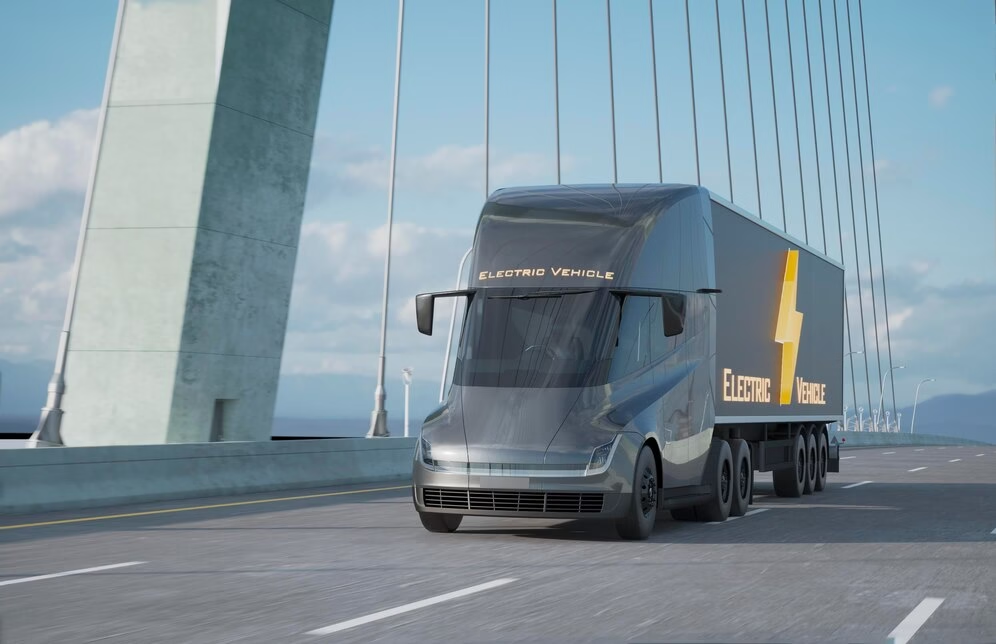
Performance and Reliability of Electric Trucks
Electric trucks offer strong performance, with powerful torque and smooth acceleration. They can handle heavy loads well, making them suitable for many trucking jobs. Unlike diesel trucks, they provide instant power without lag, which helps in climbing hills and quick takeoffs.
Reliability is another key factor. Electric trucks have fewer moving parts, which means less wear and tear and lower maintenance costs. They don’t require oil changes or complex engine repairs. However, battery lifespan and charging time are a matter of concern. Batteries may lose efficiency over time, and charging takes longer than refueling a diesel truck.
Despite these challenges, advancements in battery technology and growing charging networks are improving the reliability of electric trucks. As technology evolves, owner-operators can expect better durability and performance in the coming years.
Regulations and Compliance Requirements
Governments are introducing new rules to reduce pollution, which will make electric trucks more important in the future. Many cities and states are setting stricter emission limits, which means diesel trucks may face more restrictions, higher taxes, and extra fees.
Governments are offering tax credits, grants, and other incentives to help truckers switch to electric trucks. Owner-operators need to stay updated on these regulations to avoid fines and take advantage of available benefits. As electric trucks become more popular, the rules will continue to change, so staying informed is important for a smooth transition.
Conclusion
Electric trucks are becoming more popular, and 2025 will bring even more changes for owner-operators. While high costs, charging challenges, and battery range are still concerns, technology is improving, and more support is available. Governments are offering incentives, charging stations are increasing, and batteries are getting better.
For owner-operators, switching to an electric truck may take planning and investment, but it can lead to long-term savings on fuel and maintenance. As the industry grows, electric trucks will become more practical and beneficial. The future of trucking is changing, and being prepared can help owner-operators stay ahead. Choosing the best dispatch service for owner-operators can also be a game-changer, ensuring optimized routes and better profitability in the evolving trucking landscape.
Related posts
Recent Posts
Subscribe
Calendar
| M | T | W | T | F | S | S |
|---|---|---|---|---|---|---|
| 1 | ||||||
| 2 | 3 | 4 | 5 | 6 | 7 | 8 |
| 9 | 10 | 11 | 12 | 13 | 14 | 15 |
| 16 | 17 | 18 | 19 | 20 | 21 | 22 |
| 23 | 24 | 25 | 26 | 27 | 28 | 29 |
| 30 | 31 | |||||

